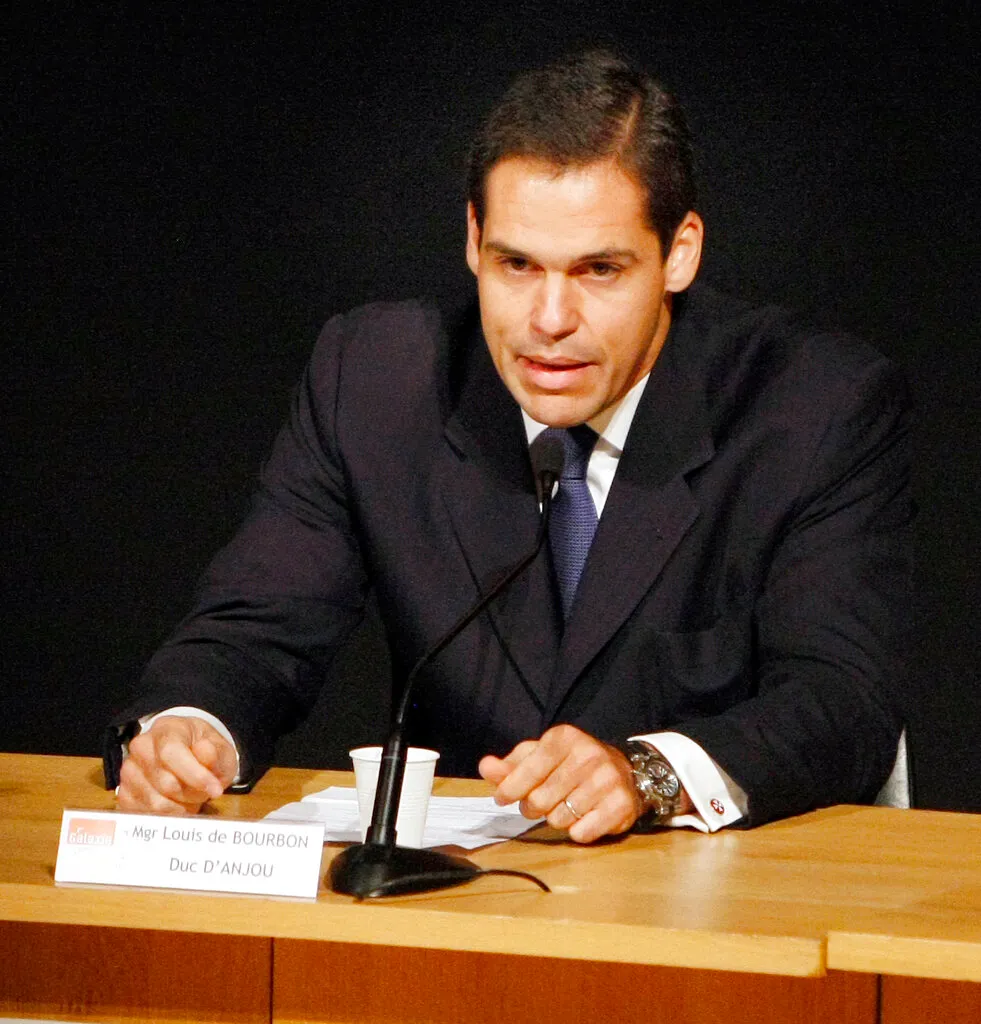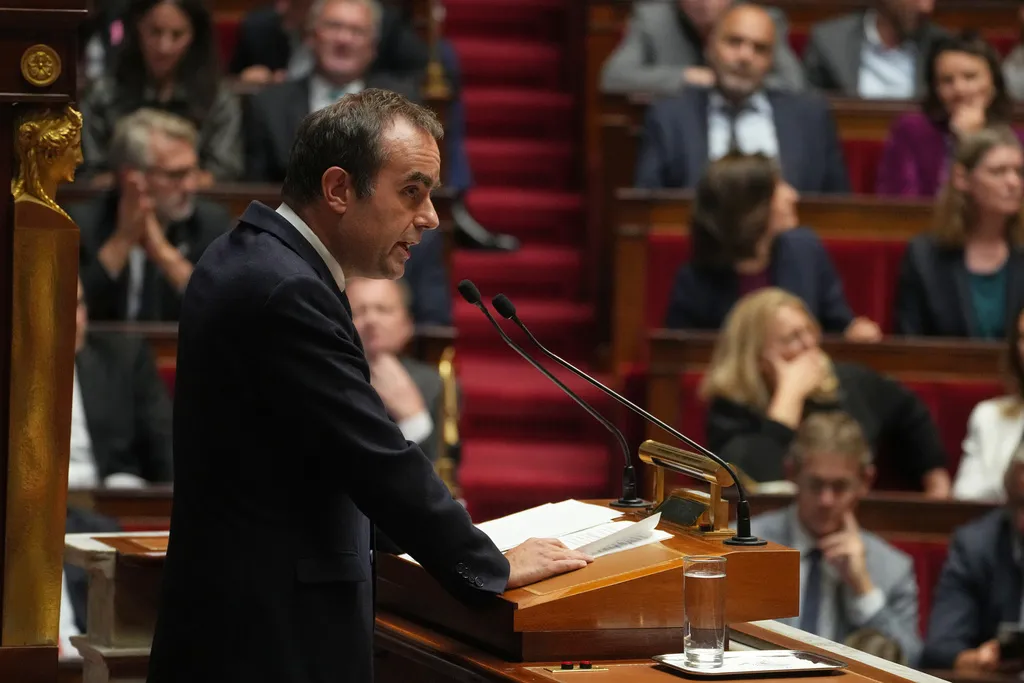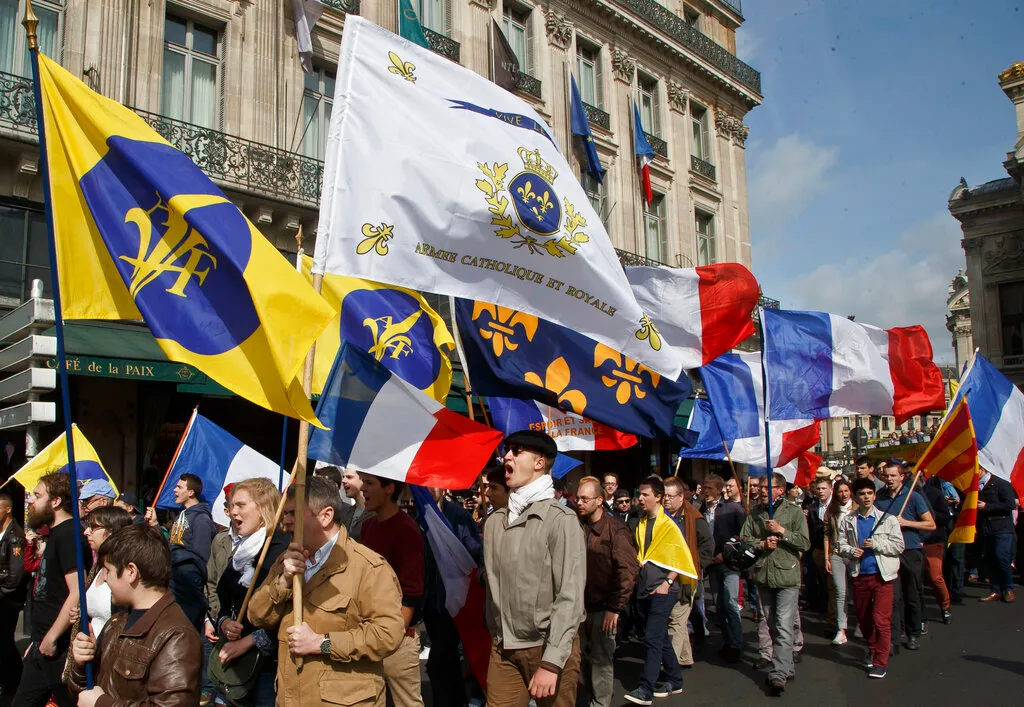A pretender to the French throne has put himself forward as an underdog candidate to address the ongoing chaos within the nation’s parliament.
French President Emmanuel Macron reappointed last week Prime Minister Sébastien Lecornu, who previously resigned less than 24 hours after forming his Cabinet, in hopes that the beleaguered head of government can drag the three warring factions of the National Assembly into a budget agreement.
Lecornu is courting the Socialists with deferrals on raising the retirement age, but two no-confidence votes are already scheduled for Thursday. In his first term, Lecornu was the fourth prime minister to step down in under a year. If the vote carries, he may take the honor of doing so twice.
In this vacuum, a monarchical rival from the past has emerged to question whether the Fifth Republic is even worth saving, Prince Louis de Bourbon, Duke of Anjou and claimant to the throne.
“The political, institutional, and social state of our country continues to worsen. I consider it my role as head of the House of Bourbon and heir of the dynasty that made France to speak on the issue,” the man who would be king wrote in an unexpected editorial on Oct. 8.

He continued: “At a moment of decision, I hope that the monarchical legacy of which I am the trustee is still sufficiently vibrant in the heart of my compatriots to be a source of inspiration and, I must say, hope.”
The duke, the direct descendant of Louis XIV, is considered by “Legitimist” monarchists in France to be the rightful heir to lead the nation. The op-ed was published in the Journal du Dimanche newspaper.
Louis accused the French political class of preferring to “play their own games” instead of “acting in the higher interest of France and therefore of the French people.”
He commended the founder of the Fifth Republic, President and former general Charles de Gaulle, for crafting a constitution with a strong executive branch but lamented that the nation remains “subject to partisan logic.”
“It must be acknowledged that fifty years later, the scourge that has so often brought suffering to France has reappeared with renewed force,” Louis wrote.
“As has so often been the case in the past, the republican institutions and the political class are proving unequal to the challenges of our time. The Fifth Republic, like its predecessors, seems on the verge of collapse,” he continued. “Thus, I invite the French people to reflect carefully on the current state of our institutions and on a ruling class whose great negligence makes its practice of self-appointment intolerable.”

The Duke of Anjou’s op-ed was followed by an Oct. 11 interview on French television outlet CNews, in which he made a similar case against the Republican government, which he says has “appalled” him with its “absolute deadlock.”
Careful with his language, the pretender to the throne said only that he remains at the service of the French people should he be called upon.
It is a unique proposal, but it is hardly expected to resonate with most French citizens, who are utterly unfamiliar with the former royal family.
Even if there were to be a miraculous revival of monarchism in the strictly secular and liberal France, it is not a guarantee that the Duke of Anjou would be considered the proper successor.
The “Legitimist” movement is opposed by two rival monarchist factions, the Orléanists and the Bonapartists.
Orléanists back Prince Jean Carl Pierre Marie d’Orléans, Count of Paris, as the legitimate heir to the throne, based on a disagreement on succession protocol dating back to the 1880s. Bonapartists reject the ancient monarchy altogether and back Prince Jean-Christophe, the great-great-great-great-nephew of Emperor Napoleon Bonaparte.
In 2009, the Count of Paris made his own attempt to curry favor with the French public, touching on many of the same points made by his rival, the Duke of Anjou. In his memoir, “Un prince français” (English: “A French Prince”), he argued against the 1789 revolution and decried the republican form of government as unstable.

“The King, contrary to the President, is not subjected to elections,” the count said, according to The Times. “And that changes everything. A prince does not govern according to opinion polls. He can therefore listen to everyone, neglect no one, take advice from all and decide in all honesty, guided only by a desire for the common good.”
MACRON DRAGS LECORNU BACK INTO OFFICE WITH ‘CARTE BLANCHE’ TO PASS A BUDGET
Polling on monarchist sympathies in France is not frequent, but a poll in 2016 purported to show that approximately 17% of the country would support a royal restoration. That figure rose to approximately 27% and 37% among center-right and hard-right voters, respectively.
It is unclear how this data might have changed over the last decade, but it is highly unlikely that sympathies have shifted enough to even consider the political maneuvers necessary to roll back the French Constitution’s republican framework.
The Duke of Anjou’s media blitz is unprecedented in modern France, and his appearances have drawn widespread commentary from supporters who yearn for a Third Empire and detractors who consider the Spanish-born aristocrat hopelessly out of touch.
It is unlikely that Louis preoccupied Macron’s mind for very long, however, as the president tries desperately to find a path forward that won’t require him to call a snap election, a decision that could hand the right-wing National Rally a majority in parliament.
